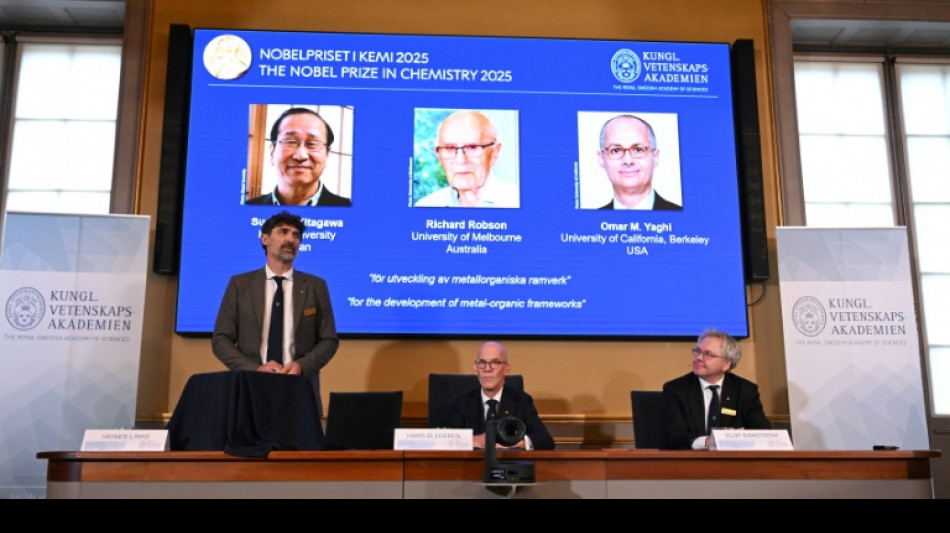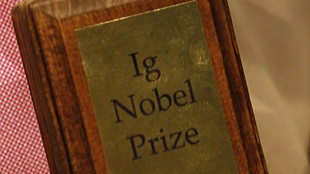
Trio wins chemistry Nobel for new form of molecular architecture

Japan's Susumu Kitagawa, UK-born Richard Robson and American-Jordanian Omar M. Yaghi on Wednesday won the Nobel Prize in Chemistry for developing so-called metal–organic frameworks, the Nobel jury said.
"These constructions, metal–organic frameworks, can be used to harvest water from desert air, capture carbon dioxide, store toxic gases or catalyse chemical reactions," the jury said.
Commentators have for years suggested Yaghi was a strong contender for the prize, with Kitagawa's name also often floated alongside his.
"Metal–organic frameworks have enormous potential, bringing previously unforeseen opportunities for custom-made materials with new functions," Heiner Linke, chair of the Nobel Committee for Chemistry, said in a statement.
Last year, the chemistry prize went to Americans David Baker and John Jumper, together with Briton Demis Hassabis, for work on cracking the code of the structure of proteins, the building blocks of life, through computing and artificial intelligence.
The chemistry prize follows the physics prize, which on Tuesday honoured Briton John Clarke, Frenchman Michel Devoret and American John Martinis for work putting quantum mechanics into action -- enabling the development of all kinds of digital technology.
On Monday, the Nobel Prize in Medicine was awarded to a US-Japanese trio for research into the human immune system.
Mary Brunkow and Fred Ramsdell, of the United States, and Japan's Shimon Sakaguchi were recognised by the Nobel jury for identifying immunological "security guards".
Thursday will see the literature prize handed out, and the highly watched Nobel Peace Prize on Friday.
The economics prize wraps up the 2025 Nobel season on October 13.
The Nobel consists of a diploma, a gold medal and a $1.2-million cheque, to be shared if there is more than one winner in a discipline.
The laureates will receive their prizes at formal ceremonies in Stockholm and Oslo on December 10.
That date is the anniversary of the death in 1896 of scientist Alfred Nobel, who created the prizes in his will.
Q.Bernardi--INP

 London
London

 Manchester
Manchester
 Glasgow
Glasgow
 Dublin
Dublin
 Belfast
Belfast
 Washington
Washington
 Denver
Denver
 Atlanta
Atlanta
 Dallas
Dallas
 Houston Texas
Houston Texas
 New Orleans
New Orleans
 El Paso
El Paso
 Phoenix
Phoenix
 Los Angeles
Los Angeles



